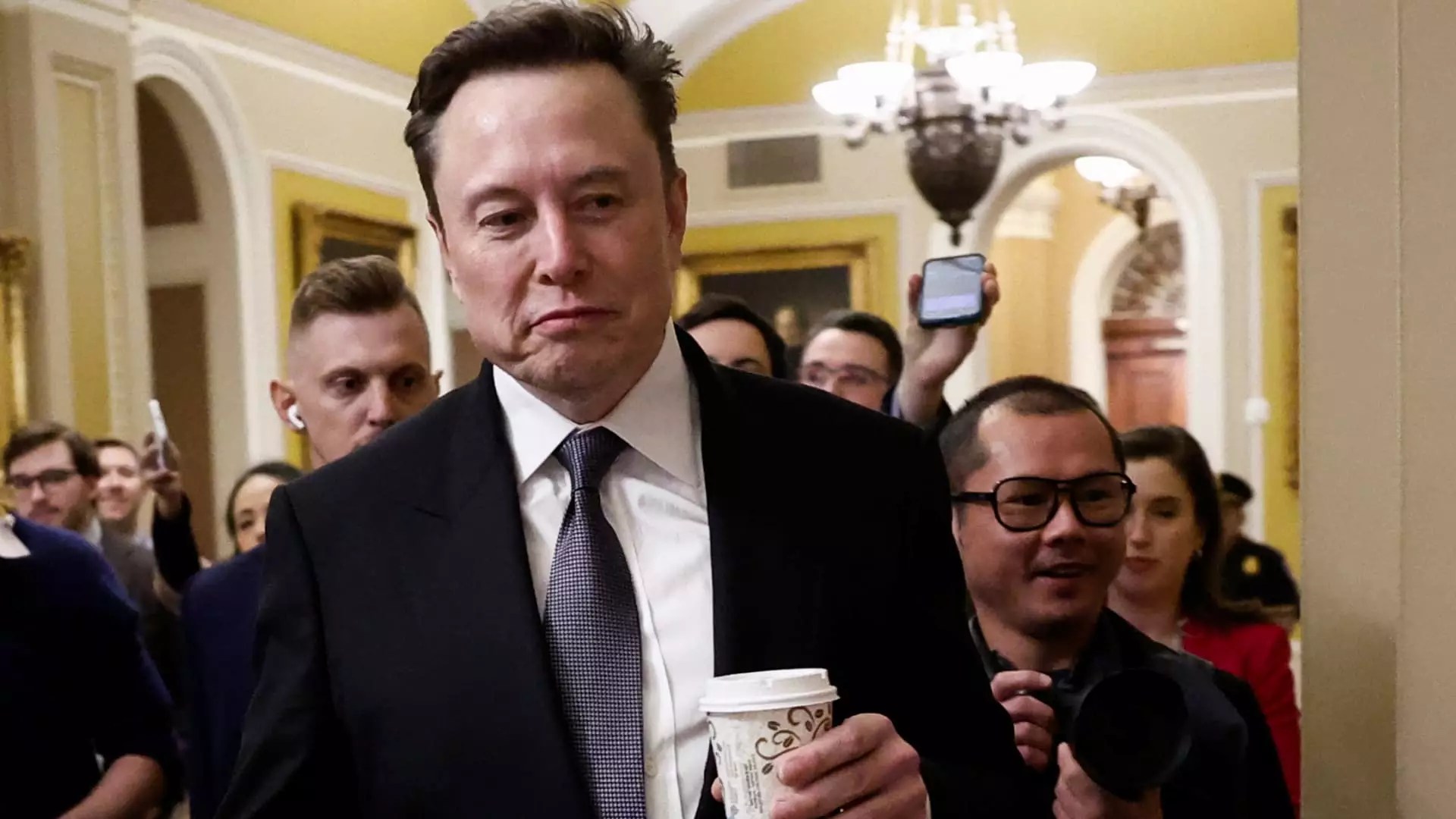Easterly Government Properties (DEA) has found itself navigating turbulent waters since the recent U.S. presidential election, witnessing a significant decline in its stock value. Investors are grappling with anxiety surrounding the implications of the newly established Department of Government Efficiency (DOGE), which aims to enact sweeping cuts in federal spending. With approximately 98% of Easterly’s revenue derived from its government leases, analysts and investors alike are questioning the sustainability of the company’s business model in this potentially hostile environment.
Easterly Government Properties operates a diverse portfolio of 100 government leases, ranging from Veterans Affairs medical centers to courthouses and FBI offices. However, the advent of DOGE, led by notable entrepreneurs such as Elon Musk and Vivek Ramaswamy, has raised concerns that certain government operations funded through leases like those belonging to Easterly may come under scrutiny for budgetary cuts. As stated by CEO Darrell Crate, the properties under their management provide essential services that align with government functions essential to national security and public welfare, suggesting that the investor fears might be somewhat misplaced.
Despite Crate’s reassurances, investors’ sentiments have driven a stock price decline of about 12% since the election. Skepticism among financial analysts, particularly from firms like BMO Capital Markets, highlights the precarious nature of Easterly’s lease agreements. While there is a strong belief that core government operations—such as those conducted by the FBI—will not face outright eliminations, analysts worry that budgetary constraints may still impose restrictions and adjustments on these facilities, thereby potentially affecting Easterly’s revenue streams.
Another critical aspect influencing Easterly’s stock performance is its dividend policy. The company currently offers a quarterly dividend of 27 cents per share, yielding about 9% based on recent market conditions. Analysts like John Kim from BMO Capital Markets express concern that this dividend payout may be overly generous given the uncertain revenue landscape. His recommendation to reevaluate this policy indicates that a reduction in dividends could present opportunities for share price recovery—a suggestion met with resistance from Easterly’s management.
Jonathan Hughes, an analyst from Raymond James, echoed this sentiment, recognizing the prevalent concerns but arguing that they may be exaggerated. The mixed ratings from the six analysts covering Easterly lend credence to the complexity of the situation; the opinions range from “sell” to “buy,” reflecting the diverse perspectives on the company’s stability and potential for recovery.
Looking ahead, Crate emphasized the importance of clear communication regarding Easterly’s mission and objectives. With the looming shadow of government efficiency efforts, it is crucial for the company to articulate how its roles and services intertwine with the overarching goals of efficiency and accountability. Crate has expressed optimism about the partnership with DOGE, indicating that private-public collaborations can enhance quality while simultaneously reducing costs.
Moreover, the dynamic political landscape presents opportunities for Easterly to engage with policymakers. Crate’s connections within the Trump administration may enable more direct discussions regarding the importance of sustaining key government services. However, despite these potential advantages, the company’s stock saw further declines, falling another 4% in December, underscoring the challenges it faces in restoring investor confidence.
Easterly Government Properties finds itself at a crossroads, grappling with the impacts of political changes on its operational viability. As it braces for potential federal spending cuts, the company must navigate investor concerns strategically while maintaining the integrity of its mission-critical leases. The interplay of dividends, strategic communications, and ongoing efforts with DOGE will be pivotal as Easterly moves forward during these tumultuous times. Whether the company can rebound and thrive amidst these challenges remains to be seen, but it is clear that a proactive approach will be essential for its survival in a shifting political landscape.


Leave a Reply